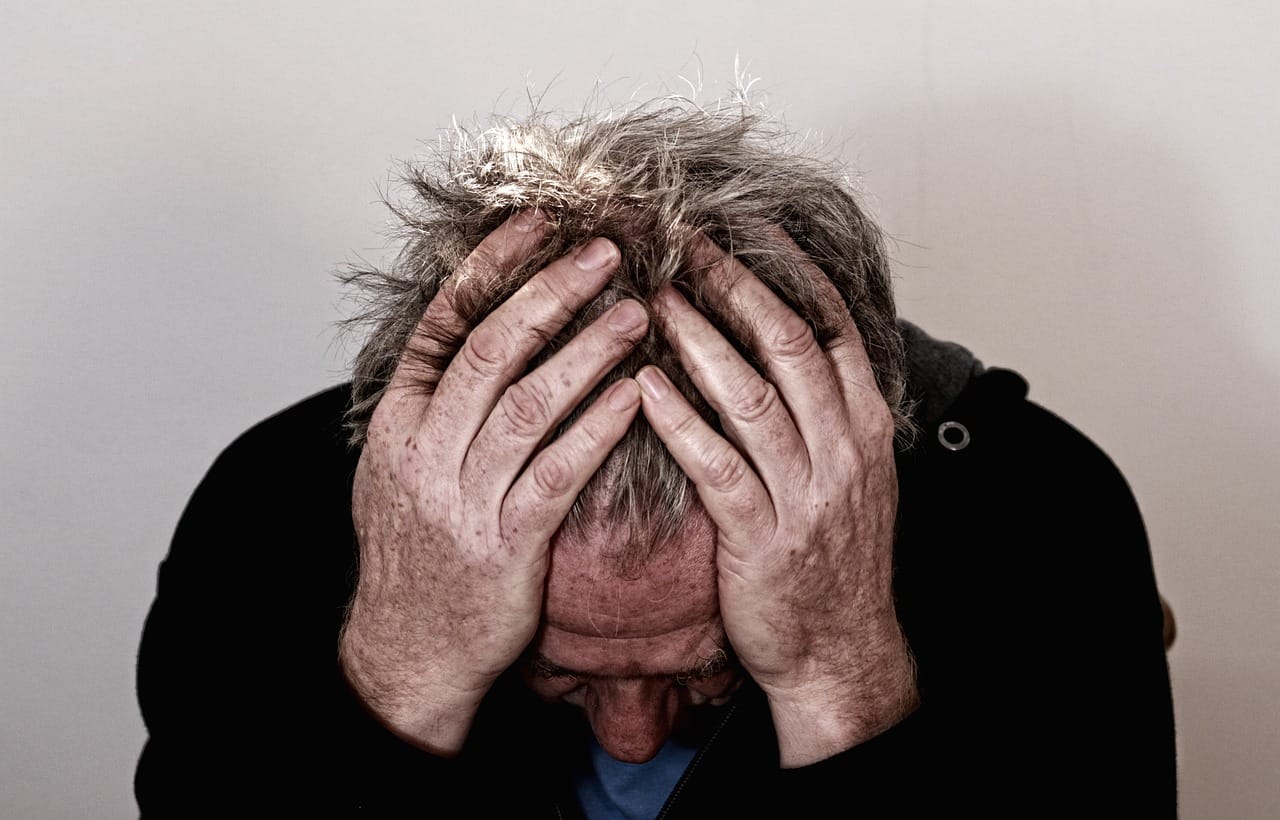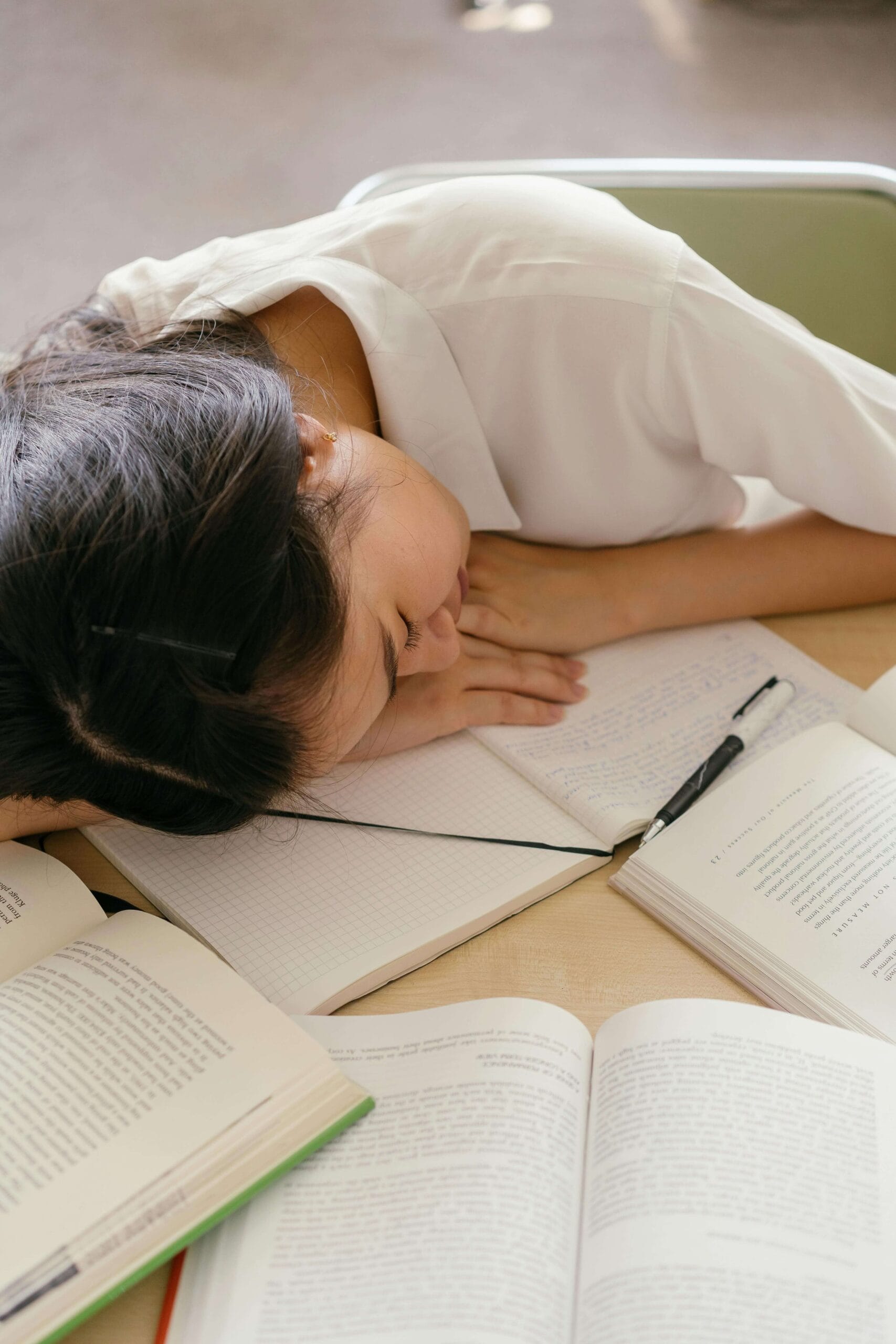Please don’t fall asleep as you read this article:
We’ve all been there: an assignment due in a month suddenly becomes an urgent task the night before, and we’re burning the midnight oil to get it done in time. The 1pm deadline rolls around, and we hand it in, jittery from caffeine and sleep deprivation—only to end up too tired to make our 9am the next day. But a little all-nighter never hurt anyone, right?
Why do we need sleep?
We spend ⅓ of our life asleep, along with 7 years of our lives just trying to fall asleep. Sleep may feel like a waste of time, but it’s anything but passive. Even though we seem dormant, our brains are working overtime.
Sleeping affects almost every tissue and system in the human body. It helps the immune system fight off potential infections, cardiovascular health, reducing the risk of heart disease, memory consolidation and more.
One thing sleep helps with is emotional regulation. Have you ever noticed how you can become more emotionally reactive as you get more tired and it gets closer to night, and when you wake up everything’s okay? This is because sleep is needed to regulate our stress and emotions collected throughout the day, allowing us to wake up level-headed in the morning. Brain scans have shown that without sleep, there’s a 60% increase in amygdala activity. The amygdala is a nuclear complex in the brain known as it’s “emotion center”. Increase in amygdala activity means a person is more likely to feel anxious, fearful, or even become aggressive.
We begin to feel tired as chemical messengers in our brains called neurotransmitters located in places like the brainstem and hypothalamus start to “switch off” nearby brain cells which make you feel awake.
So what happens if you pull an all nighter?
In exam season, pulling an all nighter is not a foreign concept, but what actually happens? Firstly, your brain doesn’t only get clouded- it gets reckless. Studies show that going without sleep impairs your brain as much as being drunk, which is why 17% of adults have reported falling asleep behind the wheel in the past year. Scientists have linked the dangers of chronic sleep loss to being similar to driving while intoxicated with alcohol.
The risks of no sleep aren’t just short term. Long term sleep deprivation, also known as sleep deficiency, can come with experiences such as working night shifts. The World Health Organisation (WHO) classifies this as a probable carcinogen, linking chronic sleep disruption to serious long term consequences. These can include heart disease, obesity and stroke.
In case you’re wondering “How long can I go without sleep and still be fine?”, the number of people who can survive on five hours of sleep or less without any impairment whatsoever, is… zero.
The neuroscience behind it
When we don’t get enough sleep, our brains are unable to do their essential role of removing toxins. Whilst we rest, a system called the glymphatic system (named from a combination of “glia” and “lymphatic”) kicks in. The glymphatic system contains glial cells which are a particular type of neuro functional cell in the human body. It’s a precise network that acts as a waste disposal pathway. It’s like the brain’s “plumbing system”.
Just as the brain filters through all your memories and emotions of the day, the glymphatic system clears all the waste and toxins built up throughout the day. Think of it as pressing a reset button on your brain – only it’s something that can happen only when you’re sleeping.
When the brain can’t do this (due to you pulling an all-nighter) the system doesn’t have a chance to do its job properly and this can lead to problems with memory, thinking and decision-making. Over time these toxins can build up in the brain which can lead to long term health issues.
Studies also show that sleep is essential for repairing neurons and making new synaptic connections. If a person doesn’t get enough sleep, some neurons in their brain can malfunction. If neurons aren’t functioning properly it can impact a person’s performance and behaviour.
So, whilst it may be tempting to skip sleep to get some more work done,, the brain eventually pays the price.
The Social Cost of Sleep Deprivation
We often take pride in how little we’ve slept and how we’re still able to function, with the all too familiar conversation of “I only got X hours of sleep last night”. Neuroscientist and sleep researcher Matthew Walker explains how we as a society stigmatise sleep, wrongly associating it with the label of laziness.
In a culture that glorifies constant productivity “grinding” and late nights, rest is often seen as optional – or even indulgent and a “treat”. People wear sleep deprivation like a badge of honour, equating exhaustion with dedication and ambition. None of us want to give up socialising at the KPA, going to the gym or seeing our friends, so we give up sleeping instead.
This mindset isn’t only flawed, it’s a dangerous one. When we normalise sleep deprivation we ignore the crucial role sleep plays in our mental and physical health. The truth is, a good nights sleep is one of the healthiest and productive things we can do. No part of our biology is left unharmed by sleep deprivation, and yet no one does anything about it. When’s the last time a doctor prescribed sleep instead of sleeping pills?
Sleep loss costs the UK economy over £30bn a year in lost revenue, or 2% of GDP.
With late-night studying and early lectures, university students are among the most sleep deprived populations. But this may cost more than it’s worth.
So, while one all-nighter won’t kill you, and I may have wrote this article sleep deprived myself, in the words of neuroscientist Matthew Walker:
‘The shorter you sleep, the shorter your life’








